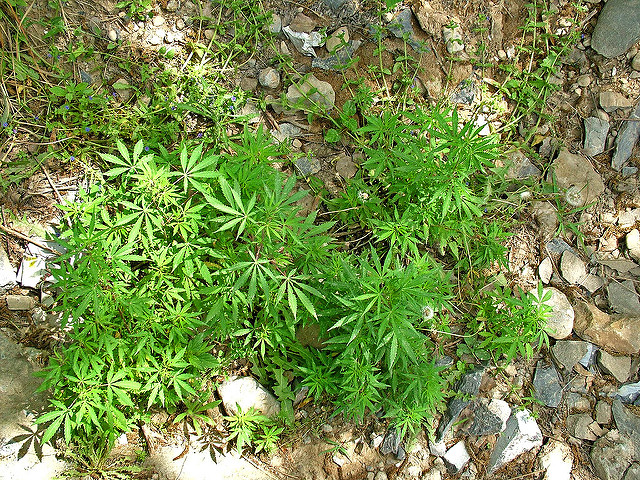United States Attorney General Jeff Sessions just announced that he would reverse the Obama-era decision to not prosecute federal marijuana-related crimes in states where the drug has been legalized. And so again, marijuana is in the headlines. But amidst all the buzz, what do we actually know about the health effects of marijuana? This controversial topic could use an injection of calm, rational, fact-based discussion. As a psychiatrist specializing in the treatment of serious mental illness and co-occurring substance use disorders, I can provide a little clarity.
First, although nowhere near as damaging to public health as other drugs including tobacco, alcohol, and opioids, we can’t let cannabis completely off the hook. Many people can use pot safely in moderation, but there are several highly vulnerable groups who should avoid it. Despite numerous claims and even some state medical marijuana laws, there is little-to-no scientific evidence that weed helps any mental illness, and it can be addictive. In fact, there are studies showing that cannabis can make depression, anxiety, and post-traumatic stress disorder worse. So, people with psychiatric problems should probably steer clear of that joint. When the brain is forming in the womb, even the slightest external disruption can cause major problems for the child later on, so pregnant women should not use cannabis. Adolescence is another period of rapid and critical brain development, so it’s little surprise that cannabis use – especially frequent or heavy use – can disrupt academic achievement and lower IQ. Parents and teachers need to help young people make healthy choices about marijuana.
Second, speaking of adolescents, cannabis use raises the risk of developing a psychotic disorder, like schizophrenia, and lowers the age at which psychosis begins. This risk is higher with heavier use as well as use that begins at a younger age. There are also risk factors that make people much more likely to become psychotic after smoking weed, including a family history of schizophrenia, experiencing abuse or trauma in childhood, and growing up in an urban environment. Since psychotic disorders like schizophrenia cause massive disability worldwide, this is an important public health concern.
For older adults without a history of psychiatric problems, moderate marijuana use may be relatively safe for their mental health. However, cannabis smoke has many toxins including carbon monoxide and particulate matter that could cause and exacerbate medical problems. For instance, marijuana has recently been linked to increased risks of stroke and heart failure. Vaporizing or eating pot may be safer options, though we aren’t completely sure.
But aren’t there benefits to cannabis use? Maybe. There is some evidence that marijuana can provide relief for certain, specific medical conditions, such as severe pain from neurological problems, anorexia from HIV/AIDS, or maybe even seizures. And certain compounds in the marijuana plant – like cannabidiol – may help with some psychiatric symptoms.
So what to do? Avoid marijuana entirely? Support Jeff Sessions in his quest to start locking people up again for marijuana possession? On an individual level, the decision whether to use cannabis for medical or recreational purposes is highly personal, but people should at least be informed by scientific evidence rather than media hype, anecdotes, and strong opinions. On a societal level, my opinion is that the War on Drugs has been a complete failure for all drugs, but especially marijuana, causing many more problems than it has purported to solve. Rather than prosecute marijuana users, we should take a public health approach to help people who have a pot problem and work to prevent cannabis use in vulnerable populations like adolescents. And we should pursue rigorous scientific research to find effective ways to prevent harm from marijuana, and search for new medical treatments that could be hiding in this multi-faceted and fascinating plant.
Here’s more from Just Care:











Watch The Sacred Plant. Israel is cutting edge using it on clinical trials for Alzheimer’s, depression, seizures, migraines and many other maladies. CBD is not psychotropic and beneficial for pain and MS. Maybe smoking can have issues, but all in all, it’s an Up and coming cure for many health issues.
Perhaps you should check the current, updated research from other than American studies, which in my opinion is biased. Maybe the research coming from Israel !
I think that the marijuana article is mostly b.s. Manseau wrote that “maybe” there are benefits of cannabis use. Cannabis has been used for centuries. It is enjoyed by many millions around the globe. It’s not addictive. Utter nonsense.
They says there is little evidence that it helps anxiety but it’s been great for mine. I have bipolar 2. I am almost always manic. It’s like a low level hum and my soul is tied in knots. Its hard to explain but weed was the only thing that helped. It relaxes that. It also helps my facial tics. I was diagnosed with tourretes syndrome in first grade. They had me on a bunch of meds for half my life and it ate holes in my stomach. Weed never gave me peptic ulcers. Pills caused some kidney and liver tests too. They need to do better studies
Wow…just wow.
1. ” As a psychiatrist specializing in the treatment of serious mental illness and co-occurring substance use disorders, I can provide a little clarity.”
Please your industry related compensation as it relates to the pharmaceutical industry, for clarity of course.
2. “Despite numerous claims and even some state medical marijuana laws, there is little-to-no scientific evidence that weed helps any mental illness, and it can be addictive. In fact, there are studies showing that cannabis can make depression, anxiety, and post-traumatic stress disorder worse. ” all cited studies relied on self reporting of the individual involved and given the legal classification of marijuana as a class 1 drug and are likely under reported dues to (justified) fears of legal repercussions by those involved in the studies. Also the numbers of studies done (once again due to marijuana being classified as a schedule 1 drug) is very limited. Anecdotal reports suggest the opposite conclusions.
3.”Adolescence is another period of rapid and critical brain development, so it’s little surprise that cannabis use – especially frequent or heavy use – can disrupt academic achievement and lower IQ. Parents and teachers need to help young people make healthy choices about marijuana.”
From the abstract of the cited study:
“Larger longitudinal studies with more diverse samples are needed to better understand the interactive effects of alcohol, marijuana, and other substances, as well as the role of sex, co-occurring psychopathology, genetics, sleep, and age of initiation on substance use.”
The study also lumps together alcohol use and drug (not just marijuana) use…that’s a great way to “clear the air” isn’t it?
The good Dr seems to harp the same industry (AMA and Pharmaceutical companies) talking points with only vague studies in support of his claims (because as a class 1 drug in the US it is difficult, if not impossible to conduct studies on it), while ignoring studies from outside the US where it can (and has been) studied more carefully in a clinical environment.
4. “On an individual level, the decision whether to use cannabis for medical or recreational purposes is highly personal, but people should at least be informed by scientific evidence rather than media hype, anecdotes, and strong opinions.”
Such as those being expressed by the Dr and the studies he chooses to highlight.
It is long past time that the US re-classify and regulate marijuana so that proper studies can be conducted. Then, and only then can we “Clear the Air” on marijuana.
[…] adults are taking medical marijuana to ease pain and anxiety. But, as Dr. Marc Manseau has previously reported on Just Care, there is little to no scientific evidence that weed helps any mental illness, and it can be […]